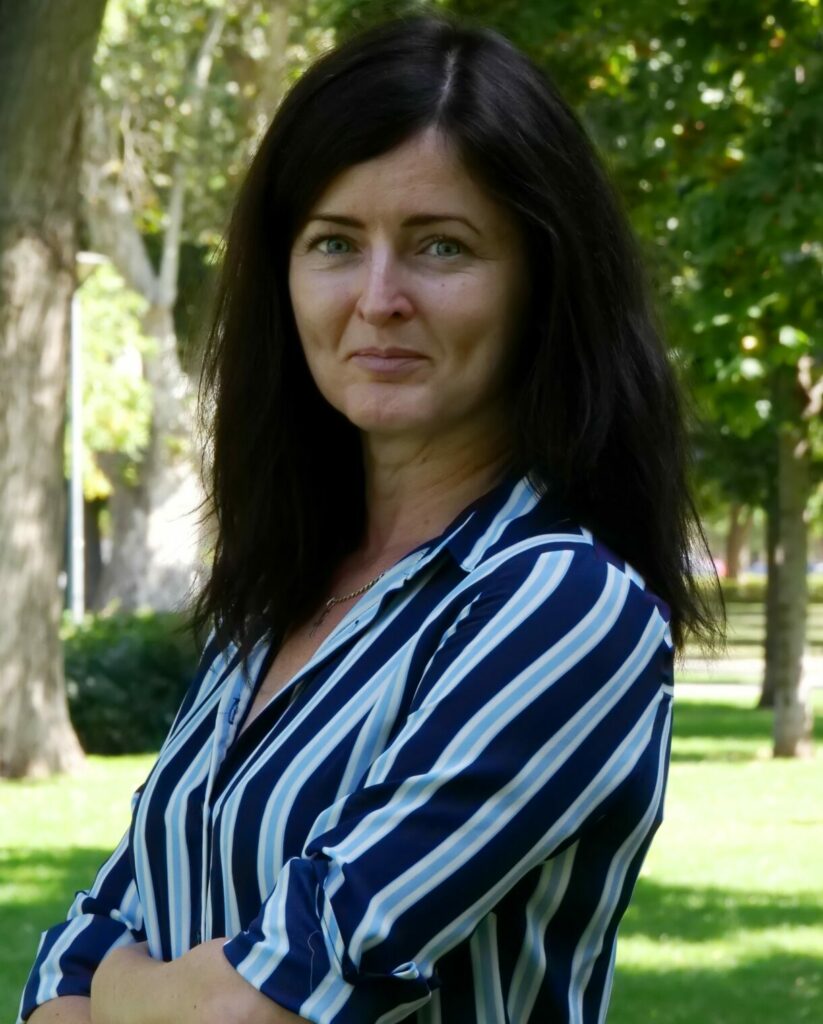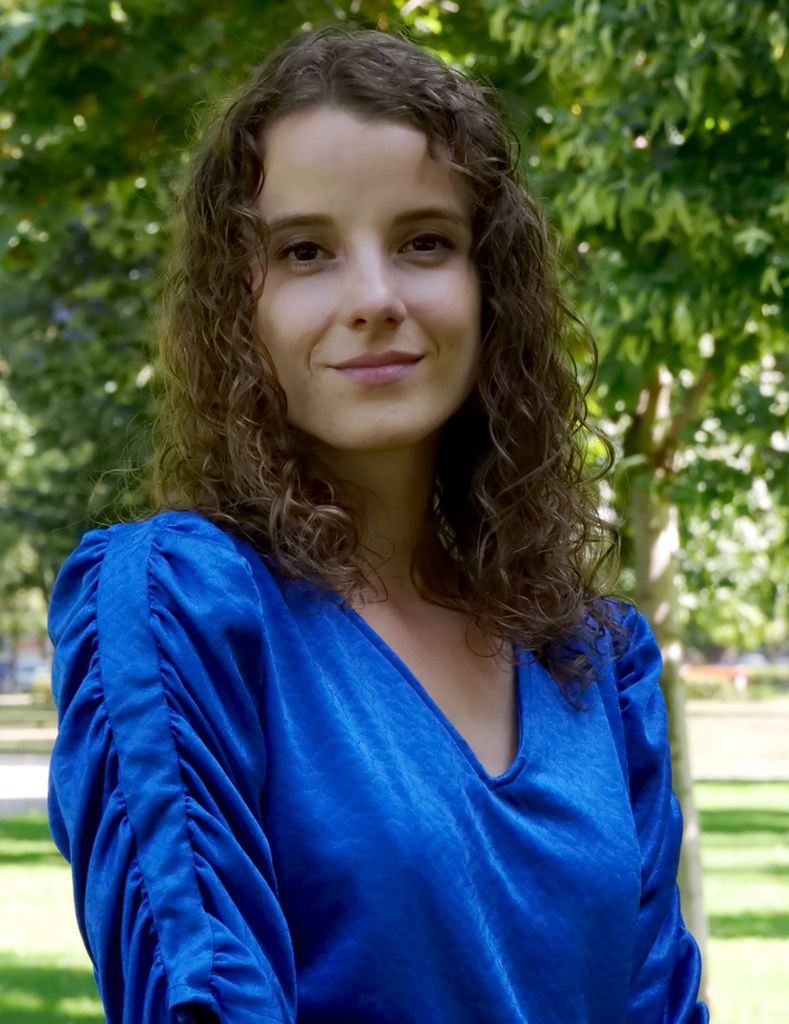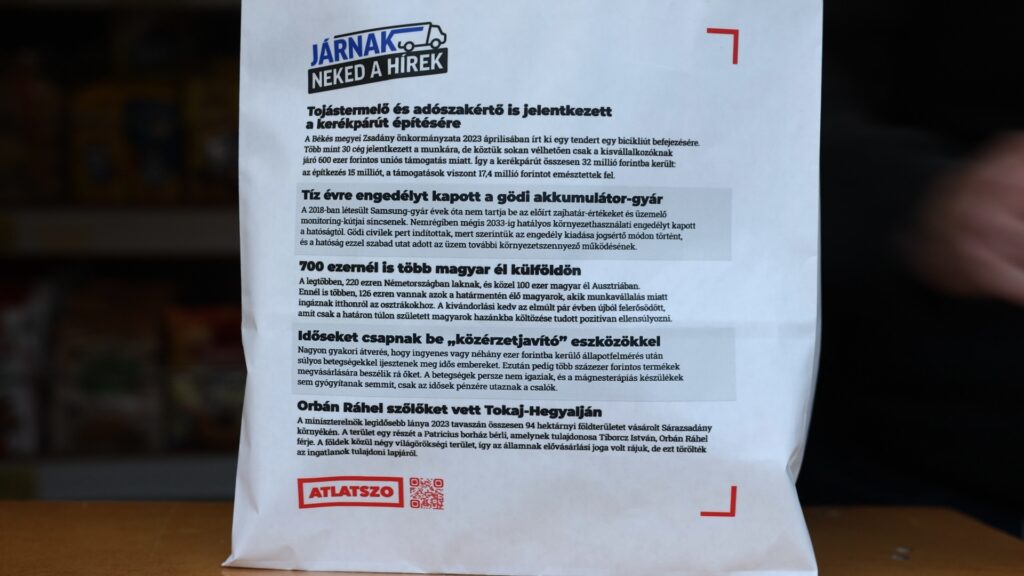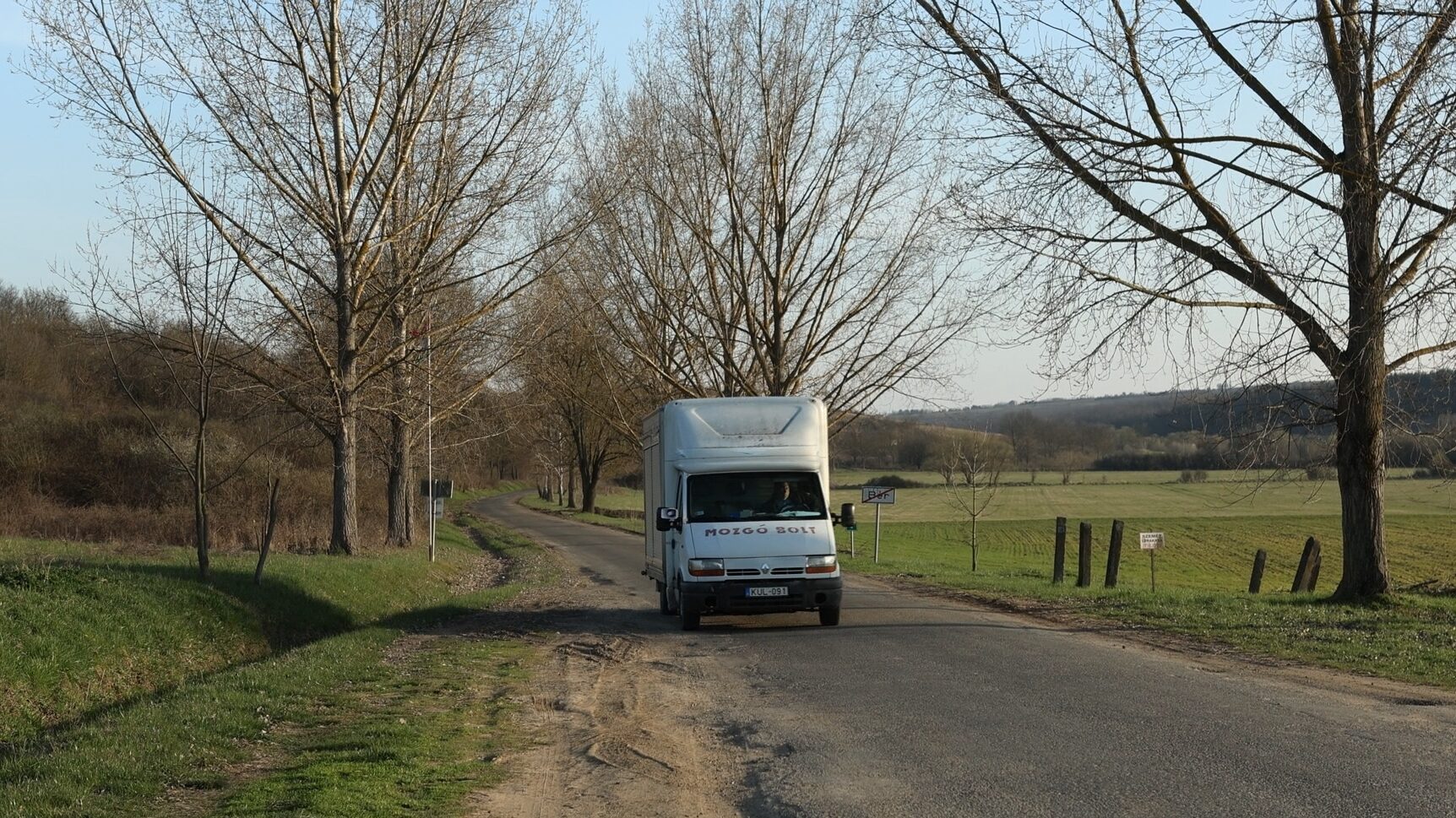The https://english.atlatszo.hu use cookies to track and profile customers such as action tags and pixel tracking on our website to assist our marketing. On our website we use technical, analytical, marketing and preference cookies. These are necessary for our site to work properly and to give us inforamation about how our site is used. See Cookies Policy
Mobile grocery store distributes Atlatszo’s stories in the villages of Nógrád county
All the stories published on Atlatszo are freely available to everyone online, and once a month, readers can also read about the cases we uncover in the print edition of the weekly newspaper, Magyar Hang. However, there are many small villages in Hungary with no post office, kindergarten, school, hospital, or grocery store. Local residents have low incomes – meaning they have much less chance of coming across our stories. Now, for a month, we’ll be delivering shortened versions of some of our stories on paper bags from a mobile grocery store to such places in Nógrád county.
István Markó has been visiting the villages of Nógrád county with his mobile grocery store for 16 years, and now he will display stories from Átlátszó on the paper bags he gives to his customers for four weeks so that our news reaches those who would otherwise not be informed.

“The mobile grocery has arrived! Coffees, pastries, sweets, paper, and household chemicals are available at a reasonable price,” announces the van’s loudspeaker in Bér as István Markó’s mobile grocery store rolls into the village.
Elderly and young people, families, puppies, people standing in chatting queues – no one seems to be in a hurry. There is something very different about shopping here from the atmosphere we are used to in city supermarkets. István Markó does a lot to create this friendly atmosphere: he calls his customers by name and has a kind word or two for each one.
The idyllic atmosphere is only one side of the story, however, and talking to locals reveals why there is a need for a mobile grocery store at all: there was only one grocery store in the village, and that closed long ago, according to an elderly woman, who adds, as an excuse: “but it’s a small village…” Small indeed: according to last year’s national census, Bér has about 370 inhabitants.
Google Maps shows one tiny shop in the village, which we saw when we were there, but it was closed at around 4 pm. The nearest larger grocery store is 15-20 minutes away by car, and it takes longer to get there by public transport. So for those who don’t want to or can’t travel that far, there’s István Markó’s mobile grocery store, which runs weekly on Wednesday afternoons in Bér – and another grocer, who delivers the meat.
A detailed article by 444.hu gives a perfect picture of the daily life of the village: ‘an aging population, few jobs, a grocery store at the nearest 30 kilometres, a hospital 20 kilometres away, the main street is potholed, there is no post office, the school has closed, the playground is run down, the pub is closed and there was never a canal’. There is a ‘small bedroom-sized’ local grocery shop in the main square, but it is not very shopper-friendly: ‘it is open from 7 am to 9 am and from 3 pm to 4 pm, whenever’, but ‘meat, vegetables, and fruit are not available’.
When István Markó’s mobile shop arrives in the village in the afternoon, there is a queue of customers waiting to buy pasta, flour, sweets, tissues, toilet paper, and other basic items. And now, for four weeks, they will also receive reading material to go with their purchases, as István has agreed to display the news of Átlátszó on the paper bags of his mobile grocery store for a month.
This way, the customers of Bér and other small villages in Nógrád County will be able to read some of our important stories. For example, about the battery factory in Göd, which has released 88 tonnes of fetal-damaging solvents into the air in recent years, yet has been granted a 10-year environmental permit.
We also found out that in a village in Békés County, an egg producer and a tax expert have applied for EU funding to build a cycle path, and that some are trying to persuade the elderly to buy equipment advertised as a wellness aid. The bags also say that while more than 700,000 Hungarians are living abroad, the prime minister’s daughter has bought vineyards in Tokaj-Hegyalja.
István Markó said that he visits 30-35 settlements a week. Most of his customers are over 60, who he says are reading less and less newspapers. Paper bags displaying stories from Atlatszo are both a way of cutting down on plastic products and a way of helping people get independent news.
Shoppers will also be able to read about Hungarian beekeepers fearing for their livelihoods because of the lifting of the ban on honey imports from Ukraine, the lack of food packages for the poorest in Csongrád County, farmers in Szeged losing their land to a Chinese car factory, and an official investigation into treeless canopy walkways.
Translated by Zita Szopkó. The original, Hungarian version of this story was written by Katalin Erdélyi and Zita Szopkó and can be found here. Video by Zsolt Mitsányi.
Share:
Your support matters. Your donation helps us to uncover the truth.
- PayPal
- Bank transfer
- Patreon
- Benevity
Support our work with a PayPal donation to the Átlátszónet Foundation! Thank you.
Support our work by bank transfer to the account of the Átlátszónet Foundation. Please add in the comments: “Donation”
Beneficiary: Átlátszónet Alapítvány, bank name and address: Raiffeisen Bank, H-1054 Budapest, Akadémia utca 6.
EUR: IBAN HU36 1201 1265 0142 5189 0040 0002
USD: IBAN HU36 1201 1265 0142 5189 0050 0009
HUF: IBAN HU78 1201 1265 0142 5189 0030 0005
SWIFT: UBRTHUHB
Be a follower on Patreon
Support us on Benevity!



